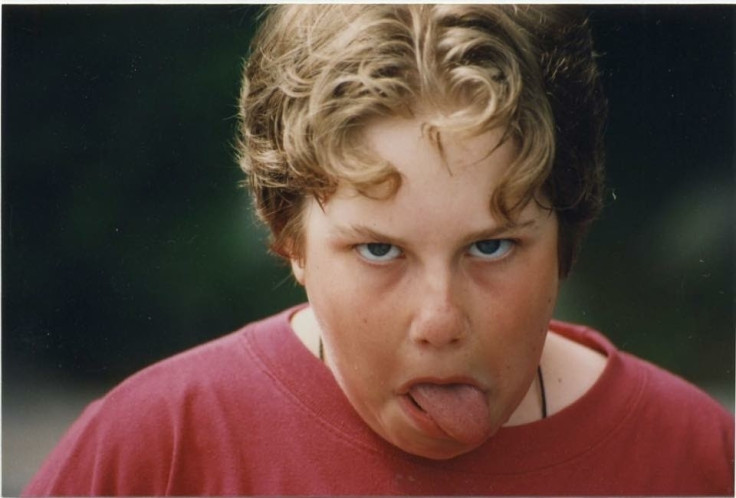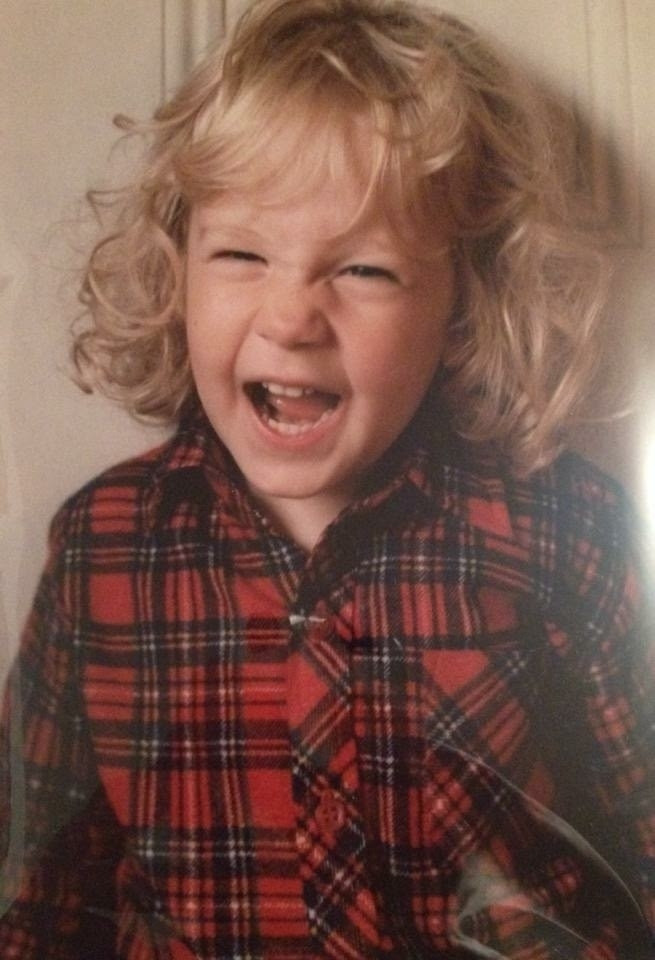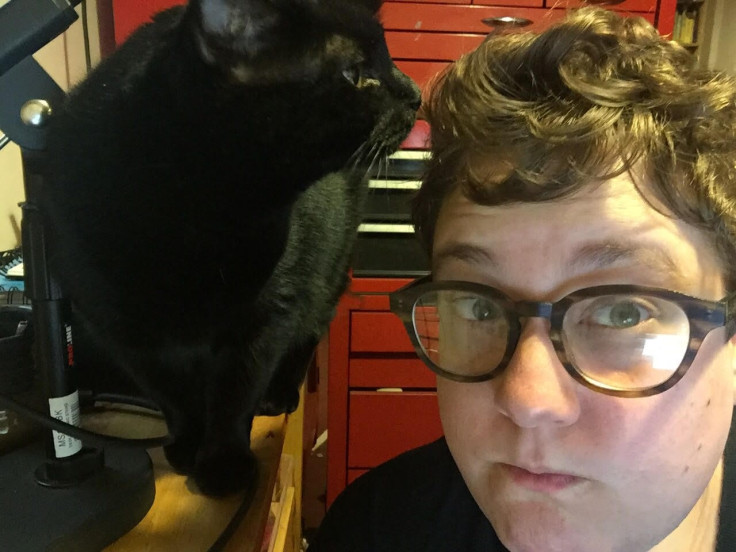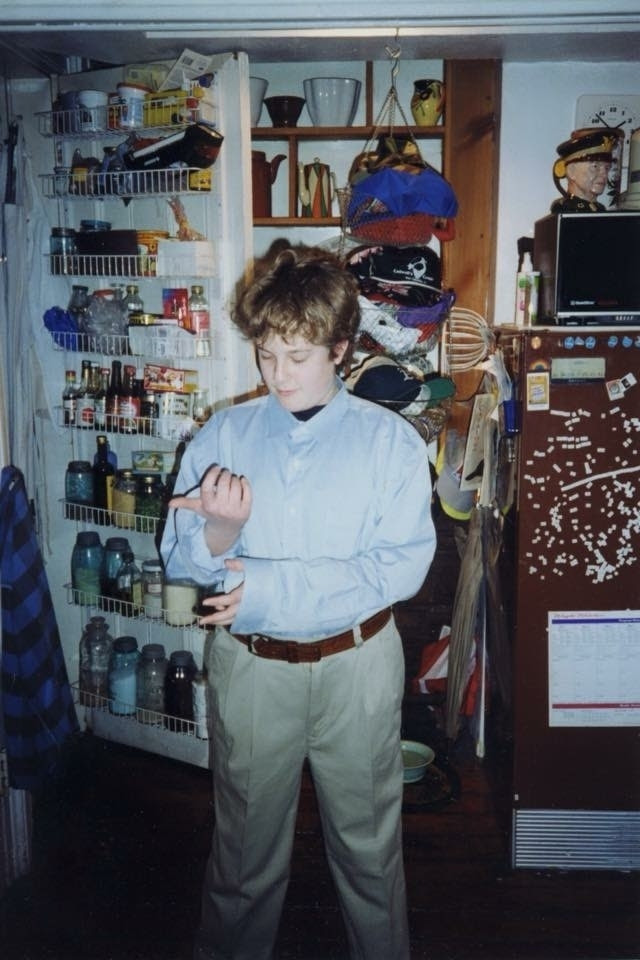I was raised as gender neutral in the 1980s - this is what it was like

KEY POINTS
- RF Jurjevics was raised without gender restrictions before it was heard of in the mainstream.
- Brands like John Lewis and River Island are now rolling out gender neutral products.
Compared with most children in New York in the 1980s, RF Jurjevics was raised a little differently. Barbies were banned at home, but stuffed animals, trucks, magic wands and tiaras - anything else, really - were fair game. That's because Jurjevics was raised without gender restrictions.
Fast forward three decades and gender neutral parenting is a hot topic. Singer Pink recently spoke about raising her six-year-old daughter and 11-month-old son in this way, meaning she allows them to play with toys and engage in activities regardless of what is traditionally considered appropriate for girls and boys. "We are a very label-less household," the 38-year-old singer told The People of her parenting style.
Singer Paloma Faith similarly caused controversy after she refused to reveal the gender or name of her baby born in December 2016. "I believe it's very important for me for boys to learn about kindness and nurturing and dolls give boys that opportunity and then it's very important for girls to believe they can achieve anything, and be scientists, mathematicians, firefighters, whatever," she said on ITV's Lorraine show.
For several years campaigners have urged toy stores to scrap gendered sections, amid fears it is discourages girls to take an interest in Stem subjects or boys to be in touch with their femininity. And retailers including John Lewis and River Island have unveiled gender neutral clothing ranges.
The term "gender neutral" itself is a fluid one. It denotes a parenting style which rejects restrictive gender norms. For some it may mean allowing a boy wear a pink dress and play with dolls, or a girl to pick up toy cars. Others might avoid using pronouns like "he" and "she", enabling a child to decide their own gender identity.
Of course, not everyone agrees with this sort of upbringing. There is a vocal minority on both sides of the political spectrum, from conservatives to radical feminists, who have attacked the trans and gender non-binary movement as a bullying fringe group at best (there are believed to be 1.4 million trans people in the US and up to 500,000 in the UK, for instance) and as destroying the fabric of society at worst.
A glossary of gender terminology
Gender identity - A person's internal sense of their gender based on society's ideas of masculinity and femininity. "Man" and "woman" are both gender identities.
Sex - The classification of a person as male or female which is assigned at birth based on their external anatomy.
Cisgender - When a person's gender identity matches the sex assigned to them at birth. E.g. when a person with a penis identifies as a man.
Transgender - An umbrella term used to describe people whose gender expression is different to the sex they were assigned at birth. E.g. a person with a penis identifying as a woman.
Non-binary / gender queer - Terms which a person who doesn't identify exclusively as a man or a woman can use to describe their gender identity. A non-binary person may use the pronoun 'they' to reflect this.

The NHS recently came under fire for asking 10-year-old children on a survey whether they feel the same inside as the gender they were born with.
Prior to this, the Office for National Statistics sparked controversy for proposing no longer asking citizens their sex on the census as it was regarded as "unacceptable and intrusive".
And London Mayor Sadiq Khan was accused of endangering women by calling for more gender-neutral toilets in the capital, despite there being no evidence that such provisions are unsafe.
But when Jurjevics was a kid, genderless parenting was barely heard of. Still, Jurjevics' parents made a very conscious decision to raise their child without gender restrictions.
"My mother was pushed into catalogue modelling as a child, and loathed it. I think it opened her eyes to a lot of gender-based nonsense really early. She wasn't a conventional person," Jurjevics, who identifies as gender non-binary and uses the pronouns "they" and "their", tells IBTimes UK.
Their father shared this attitude, as did the woman he married after Jurjevics' mother passed. "There was no room for gender BS."
"Barbies were banned from the house. We also didn't have a television until after my mum died when I was eight, and so reading and inventive and or explorative play were my go-tos. I had lots of stuffed animals - plastic ones, too. I covered them in glitter nail polish," says Jurjevics, who is now 33 and works in digital production in New York.
"My favourite thing was to pretend to be a cat. I'd take off my clothes, put on my tail and rubber cat nose, and paint stripes on myself with my mother's eyebrow pencil. It was really freeing to be in a genderless child-body."
"I could dress as I wanted, express myself as I wanted. My parents caught a lot of hell for it. I was sometimes seen as out of control, and maybe I was. But I wouldn't change it."
Dismantling conventional gender roles was the order of the day at the progressive school that Jurjevics attended. All the children played with blocks and learned to use basic tools like saws and hammers.
"My heroes were girls: Pippi Longstocking, Harriet the Spy, and Rosa Parks, whose bus protest I re-enacted with little toy people."
By fourth grade in the mid nineties Jurjevics noticed a change in how they felt. While the other children seemed happy with the gender they had been assigned at birth in relation to their sex, Jurjevics was having doubts. The other children were also free to question gender, suggesting that it wasn't the school or the parents that had changed Jurjevics but something beyond anyone's control.

"As the first rumblings of pre-tween behaviour cropped up among my friends, I began to see just how different I was. In second grade, I couldn't articulate it. By fourth grade, I had a decent idea of what was going on, but not the words for it. So I did what I thought was the best thing I could: I cut my hair and switched my name and pronouns." Jurjevics was then known as "Felix" and "he".
Suddenly, Jurjevics was met with a lot of opposition as parents accused them of rejecting femininity. "It was hard for them to understand why I would 'switch from girl to boy' when so much effort had been put forth to bolster girls' self-worth."
"But that wasn't it. I just didn't have words for what I was experiencing, because there were no terms like 'non-binary', and 'transgender' had not yet entered the mainstream. 'I just want to be unisex' is how I put it. I must have been around ten years old."
Jurjevics believes that being raised in a household which rejected gender norms "helped immensely" with coming to terms with their identity. Studies show that young people who are transgender and gender non-conforming are more likely to attempt suicide, with internalised transphobia, discrimination and rejection from friends and family heightening this risk.
"Being able to exist as myself at home was a godsend," says Jurjevics. "My gender was mine to figure out and explore. I've walked through life a girl, a boy, and now a non-binary person. Had I not been given the freedom to do that, I'm not sure where I'd be."

However, the response from those outside Jurjevics' home to them cutting their hair and switching to male pronouns confused them - rather than being able to explore their gender identity as some may suggest.
Teachers at Jurjevics' school refused to use their new name, despite having full parental support and another child being allowed to use their childhood nickname. "I didn't use the bathroom at school for years, not wanting to use the girl's or the boy's," recalls Jurjevics.

Some saw it as a reaction to their mother's death. Others asked when their old self was coming back. "Why do you look like a boy? Why do you think you're a boy? Why do you want to be a boy?" schoolmates quizzed.
When Jurjevics entered high school in the early 2000s they rejected the name Felix, putting their gender dysphoria down to something wrong, and tried to move on. It wasn't until they learned the term "genderqueer" aged 19 that their identity had fallen into place, confirming how they felt all along.
What is Jurjevic's response to those who believe teaching children about gender can confuse them at best and seriously damage them at worst?
"For one, all kids are confused. That's the nature of childhood; being confused, asking questions, figuring it out. Beyond that, though, is the fact that your kid is going to be who they are, really no matter what," they say.
"Some of this stuff - and I'm convinced that gender is one - is wired into our brains, so to speak. I didn't leap out of bed and one day just decide I wasn't a girl, though I'm sure it looked that way to a lot of people. I just knew. Even after pressing it down for years and years, it came roaring back to me.
"The problem with gender-policing kids, other than enforced gender roles being useless and harmful, is that if the kid doesn't fit the mould and isn't 'allowed' to, they're really going to suffer. I know I did. Not from my parents, who were and are wonderful about all this, along with some very dear friends. But those who continually pushed back and denied me - of whom there were a considerable amount - did lasting damage. It's hard to unlearn all of that, but I have to.
Jurjevic concludes: "They didn't know any better, also, though perhaps they should have. These days, though, we do; we do know better. Now it's time to start acting like it."






















